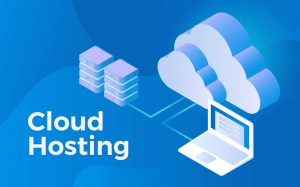Looking For Loans To Kickstart Your Business? Keep These Things In Mind

Starting your own business can be intimidating and rewarding at the same time. Apart from a great business idea which is feasible and innovative, financing is one of the essential elements you need to start your business.
A business loan being the most secured form of financing is also the most preferred one; a small loan could go a long way in leading your new business towards success.
Here are a few things you can keep in mind while looking for loans to kickstart your business.
Proper Business Plan
For a new business, the business plan is the critical pitch you place in order to acquire external finance. Considering that you may not have a past performance record, lenders will turn to your business plan to anticipate your business’s future standing.
Here are a few points you can discuss in your business plan, which can give you an edge in acquiring business loan approvals: business idea, analysis of the market, management’s experience and financial projections.
Know Your Need for Finances
While operationalizing your business plan, assess your financial situation and estimate the number of finances you will need for your business’s initial phase. This involves identifying expenses at the time of setting up the company as well as operating costs for at least the first year or till the time your new business is expected to start generating cash flows.
To estimate the number of cash flows you need your business to generate to keep up with your loan payments. For that you need a calculator, so here is CreditSpring’s loan calculator to help you gauge your requirements.
Understand the Types of Business Loans Available
There are many different types of loans available for businesses of all sizes and needs, and to opt for the most appropriate loan you need to know the types of business loans available for your kind of business.
A number of loans like short term loans, longer-length loans, variable loans, fixed-rate loans, working capital loans, equity finance, asset financing, invoice financing, and commercial mortgages are available to choose from.
Research the Available Lenders
The lending space has expanded widely to suffice the custom needs of each kind of borrower. As the number of lenders is increasing, the ambiguity to choose among the lenders also rise. Here are the main types of lenders available for you borrow from – larger commercial banks, direct online lenders, peer-to-peer lending sites, local community banks.
Besides knowing the available lenders, you also need to understand the requirements and eligibility for different kind of lenders to make an informed decision. Peer-to-peer lending is, however, gaining traction in the lending market.
Know Your Credit and Risk Profile
Anticipating the business credit and risk profile will help you understand the requirements of the lender. Here are some factors that a lender may consider: credit score, assets in the business, investors in the company, outstanding loans/cash, and financial statements.
After carefully assessing all the factors, take the necessary remedial actions to avoid in your loan application.
Ensure Proper Documentation
Keeping your documents in place and as per the loan requirements will speed up your business loan application process. It will also remove the risk of errors and presents a fair picture of your business to the lender.
A general checklist may include ID proof, address proof, bank statements, income tax return and proof of continuation. In the case of a new business, the business’s incorporation and registration papers may also be considered by the lender.
Tenure of the Business Loan
The duration of your business loan may vary depending on your financing needs and ability to repay. You may decide among a short term, medium-term or long term loan for your new business considering the following.
A short term business loan is taken to cover emergencies or when rapid cash injections are required. It safely provides for the fluctuations in the cash flow and keeps the incomes steady.
A medium-term loan is ideal for a business that expects to start generating income quickly. This will be considered favourable from the lender’s viewpoint as they can expect a quick return on their investments as most medium-term loans are paid back often between 2-3 years.
A long term loan is taken when your business has rapid growth and expansion plans. The company is expected to increase in size in 2-3 years and expand without running out of cash for operating expenses. Most long term loans don’t go over seven years.
Secured or Unsecured Loans
You need to determine whether your business needs a secured or an unsecured loan, as they have different benefits and consequences. Taking a secured loan means you get more beneficial interest rates and lower repayments, but it has to be secured against an asset. It involves upfront charges and also can be quite a slow process because of the lengthy checks.
An unsecured loan allows you to quickly access the money, and you don’t need to risk any valuable assets. However, there will be much more in-depth scrutiny of your business and your credit history. There tends to be a quicker process for unsecured loans as compared to secured loans.
Interest rates: Fixed or Variable
Business loans are available at fixed as well as at variable interest rates; a variable rate may seem attractive at first because it is cheaper, to begin with. However, the interest rates will rise with time, and you will end up paying more.
A fixed interest rate can be better as you know exactly how much you will be paying to the lender each month. However, the downside is that your fixed rate may be higher than the current rate, and in that case, fixed-rate loans will be expensive than variable rate loans.
So you need to evaluate a good deal where either your fixed interest rate is only a little above the current variable rate, as any increase in the variable rate will see you paying relatively less.
Be Prepared for Loan Covenants
Banks may ask for covenants to cover their loan. Loan covenants are specific terms you must adhere to for keeping the loan, or you will be demanded an immediate repayment by the bank. Some common conditions are maintaining a certain level of cash flow, holding capital purchases made using loan, maintaining insurance, etc.
Remember that regardless of the form of business loan you opt for, defaulting on your agreed repayments can cause you and your business severe damage for future. You must never borrow beyond your capacity to pay back and try to maintain a healthy credit record for your business.






